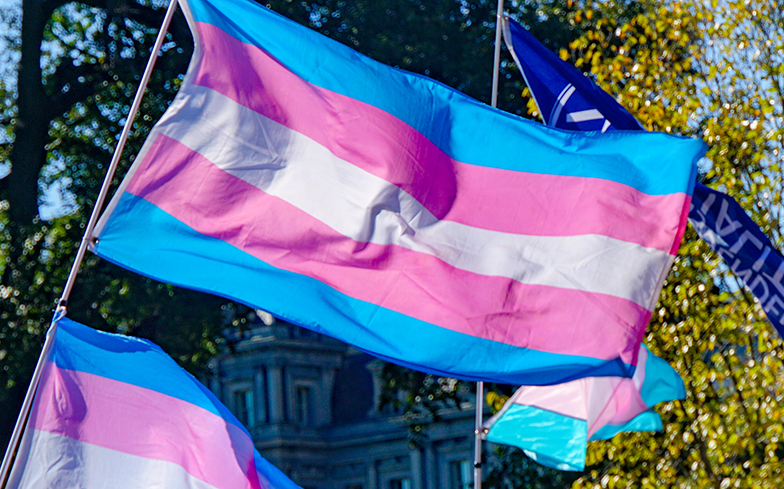
LGBTQ groups in Scotland are praising the draft bill.
Leading LGBTQ groups in Scotland are praising the Scottish government after they released their draft Gender Recognition Reform (Scotland) Bill earlier today. The bill will go out for public consultation until 17 March 2020.
The Scottish government had previously run a four-month consultation period during 2018 on ways to improve the current Gender Recognition Act. That consultation received 15,500 responses, with just under two-thirds of people (65%) agreeing to the proposed reforms.
The main aims of the draft bill is to simplify how trans people change their legal sex on their birth certificates. The main changes involve allowing trans people to make a formal legal statutory declaration about living as their gender after three months.
They then need to go through a ‘reflection period’ of another three months before the gender recognition certificate is issued. The bill also removes the need to have a psychiatric and medical report, both of which have been accused of being invasive or demeaning by trans people.
The final change is to allow people aged 16 or 17 to be able to apply for a gender recognition certificate.
Groups like the Scottish Trans Alliance, LGBT Youth Scotland and Stonewall Scotland have praised the draft bill as a “step in the right direction” for trans people living in Scotland. Although many were critical that the bill excluded trans people under the age of 16, and its lack of inclusion for gender non-binary trans people.

James Morton, the manager of the Scottish Trans Alliance, said: “We welcome the Scottish Government’s publication of their draft bill to reform the Gender Recognition Act.
“The current process to change the sex on a trans person’s birth certificate is a humiliating, offensive and expensive red-tape nightmare which requires them to submit intrusive psychiatric evidence to a faceless tribunal panel years after they transitioned.
“What’s written on a trans person’s birth certificate is not the deciding factor for their access to single-sex services or sports competitions. The reasons trans people change the sex on their birth certificate are so that they no longer have the worry of being ‘outed’ by that last piece of paperwork not matching their other ID, and to be sure that, when they die, nobody can erase their hard-won identity and right to be recorded as themselves.
“We are very pleased that the draft bill is based on statutory declaration not psychiatric evidence and that it reduces the age for application from 18 to 16.
“However, we are disappointed that the Scottish Government has chosen not to include under 16s or non-binary trans people in the draft bill. We urge the Scottish Government to expand the bill so that all trans people can have equal inclusion and acceptance within Scottish society.”

Dr. Mhairi Crawford, the chief executive of LGBT Youth Scotland, said: “LGBT Youth Scotland welcomes today’s announcement and are pleased that transgender young people over 16 are included in the draft bill.
“We support the proposed changes to enable 16 and 17 year olds to change their legal paperwork to align with their gender identity, recognising trans young people’s right to privacy and to be protected from discrimination.
“In Scotland, 16 and 17 year olds are allowed to vote, leave school, get married and have children. They can already change the sex on their passports and education records. It makes little sense to deny them the protections that updating their birth certificate affords them.
“We share young people’s disappointment that there is no inclusion of non-binary people in this draft bill and no process for under 16s who wish to obtain legal recognition of their gender. We do, however, recognise that progress takes time and regard today’s draft bill as a steppingstone to full legal recognition for trans people.
“LGBT Youth Scotland will strive to bring trans young people’s views and experiences to the fore during this consultation and we will work closely with our Youth Commission on gender recognition as we develop our organisational response.”
Sophie Bridger, the campaigns, policy and research manager at Stonewall Scotland, said: “Scotland has a proud history of being a progressive country and this Bill gives us the chance to help trans communities be recognised for who they are.
“Reforming the Gender Recognition Act to replace the current dehumanising, medicalised process with a process of statutory declaration would be life-changing for many trans people. However, we’d like to see the Bill go further to recognise non-binary identities, so every part of the trans community can benefit from the legislative change.
“Trans people have suffered for too long from inequalities that can be easily removed. So we need everyone who cares about equality to ‘come out’ in support of reforming the Gender Recognition Act and respond to the government’s consultation on the draft Bill.”



